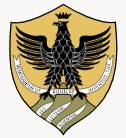Introduction
The University of Aquila is a comprehensive national university in Italy with independent teaching and research functions. It is located in L'Aquila, the capital of the Abruzzo region. The school successfully combines tradition and innovation, has a serious learning atmosphere and high-quality campus life.
Overview
Student size: There are currently about 20,000 registered students.
Number of faculty and staff: There are nearly 600 faculty members and 500 administrators.
History
The school's history can be traced back to 1596, when the Jesuits began to provide higher education in the college in L'Aquila.
In 1767, the Aquila College became the Royal College.
In 1814, Gioacchino Murat founded a higher education school in L'Aquila for the entire Abruzzo region, providing university-level teaching in medicine.
In 1949, due to the efforts of Vincezo Rivera, a professor of agriculture, and others, university-level summer courses were opened for students admitted to the University of Rome Abruzzi.
On December 15, 1952, the school began to open a summer course at the University of Rome Abruzzi. Istituto Universitario di Magistero is used for teaching.
In 1964, it was officially established as the University of L'Aquila in the modern sense.
In the 1982-83 academic year, the Faculty of Education, the Faculty of Medicine, the Faculty of Engineering and the Faculty of Natural Sciences formed the free University of L'Aquila.
In 1991, the Faculty of Economics was added, and in 1993, the Faculty of Education was changed to the Faculty of Arts. In the 1990s, the Faculty of Education (1996) and the Faculty of Physical Education (1999) were added.
Establishment time
Officially established in 1964, its history can be traced back to 1596.
School strength
Faculty: It has about 600 outstanding professors and researchers, many of whom have been internationally recognized and are leaders in their respective research fields.
Scientific research level: The school has a number of scientific research groups, which have performed well in the research of disciplines such as engineering, medicine, psychology and natural sciences. Some of its research projects are in the world's leading position, and it has established extensive cooperative relations with research centers around the world and carried out many high-tech industry cooperation research projects.
International cooperation: Actively participate in international exchanges and cooperation projects, and is a member of the European Union Socrates - As a member of the Erasmus exchange student program, it has established cooperative relationships with universities in many countries, providing students with rich international exchange opportunities.
Nature of the institution
A national university, not for profit.
Educational philosophy
Focus on cultivating students' comprehensive literacy and practical ability, committed to combining traditional academic knowledge with modern innovative thinking, providing students with high-quality education, enabling them to succeed in their respective professional fields and contribute to social development.
Key laboratories and disciplines
Key laboratories: The research and teaching activities of the Department of Physics benefit from the cooperation with the underground nuclear physics laboratory of Gran Sasso. The National Institute of Nuclear Physics is built next to the highway tunnel that passes through the laboratories of Gran Sasso, where research activities such as astrophysics, cosmogenesis, nuclear physics and geophysics are carried out.
Advantageous disciplines: Engineering, medicine, psychology, natural sciences, fashion design, industrial design, architecture, art and other disciplines are the school's advantageous disciplines. Among them, clinical medicine ranks 792nd in the world, and stomatology is also one of its trump cards. The school's orthodontic professional college has many world-renowned professors.
Faculty
The University of L'Aquila has 9 faculties covering many disciplines, including but not limited to art, economics, education, engineering, chemistry, natural sciences, sports, psychology, biotechnology, etc.
Ranking
In 2015 In the ARWU World University Academic Ranking, it ranks 650-700 in Italy; in the 2024 US NEWS World University Ranking, it ranks 1252nd, and in the TIMES World University Ranking, it ranks 501st.
Expenses
Tuition fees: Tuition fees at public universities in Italy are relatively low, and the University of L'Aquila is no exception. Generally speaking, undergraduate tuition fees are about 1000-2000 euros/year, and master's tuition fees are about 1500-3000 euros/year. The specific tuition fees may vary depending on the major.
Living expenses: The monthly living expenses for students are about 1000-1500 euros, including accommodation, food, transportation, etc.
Campus environment
Geographic location: L'Aquila is the capital of the Abruzzo region. The city has a long history, profound cultural heritage, and beautiful natural environment, providing students with a good learning and living environment.
Teaching facilities: The school has modern teaching facilities, such as libraries, laboratories, multimedia classrooms, etc., which provide strong support for students' learning and research.
Campus buildings: The campus architecture has a unique style, integrating historical and modern elements. Some buildings were damaged in the 2009 earthquake, but after reconstruction and restoration, the campus still shows its unique charm.
-
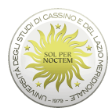
University of Cassino and Southern Lazio
-
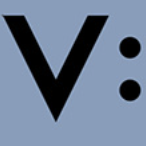
University of Campania Luigi Vanvitelli
-
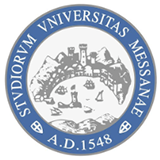
University of Messina
-
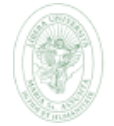
Libera Universita degli Studi Maria SS. Assunta di Roma (LUMSA)
-
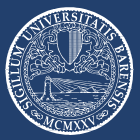
University of Bari Aldo Moro
-
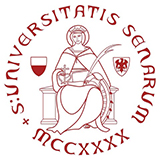
University of Siena
-
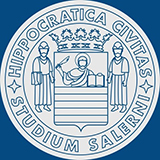
University of Salerno
-
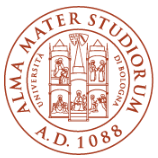
University of Bologna
-
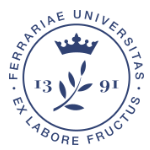
University of Ferrara
-
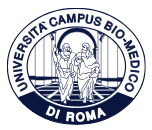
Campus Bio-Medico University of Rome
-

Mesoamerican University
-

Istmo University
-

Mariano Galvez University of Guatemala
-

Regional University of Guatemala
-

Galileo University
-

Francisco Marroquín University
-

Rafael Landívar University
-

University of the Valley of Guatemala
-

University of San Carlos of Guatemala
-

Technological Institute of Tlaxcala Plateau
-

Golfo University
-

Technological University of South Sonora
-

Technological University of Huejotzingo
-

Tizimín Institute of Technology
-

Chilpancingo Institute of Technology

